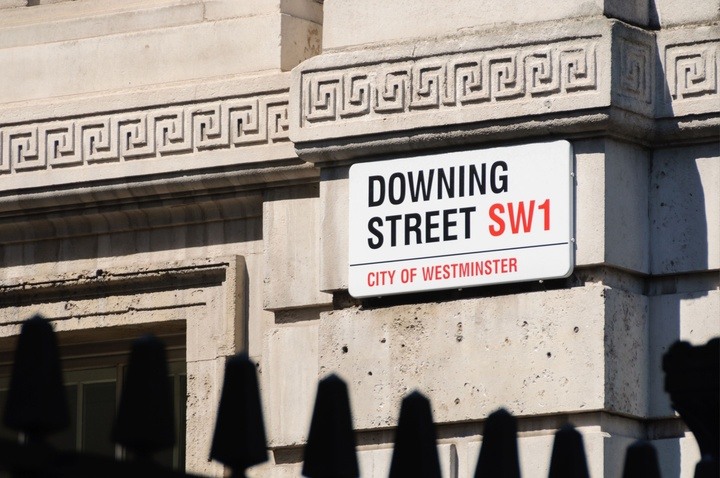Weekly Briefing: UK House Prices Rise, Recent UK Blackstone Acquisition, and Financial Markets Stabilise Ahead of Election.
In this week's briefing, we explore the unexpected rise in UK house prices, Blackstone's acquisition of Village Hotels, and the stability returning to UK financial markets as the country approaches a general election.
These key developments provide insights into the UK property, investment, and economic spaces of late, which we’ll delve into more below.
UK Property
UK House Prices See Unexpected Rise in June
- Nationwide reported a 0.2% rise in house prices between in June, bringing the average house price to £266,064. This marks a 1.5% year-on-year increase, surpassing the 1.1% forecasted by economists.
- The market's growth and stability is attributed to anticipated interest rate cuts from the Bank of England.
- Michelle Stevens of finder.com noted, “The market seems to be stabilising in anticipation of lower rates on the horizon.”
- Despite this, UK mortgage approvals fell for the second consecutive month in May, reflecting ongoing high borrowing costs.
- Significant regional variations were observed, with Northern Ireland and the North West showing strong growth, while the South West and East Anglia saw declines.
- Tom Bill from Knight Frank commented on the market’s performance, “A new government and the first rate cut since March 2020 should inject more energy after the summer.”
UK Investment
Blackstone Acquires Village Hotels in £700 Million Deal
- Blackstone recently acquired Village Hotels from KSL Capital Partners for around £700 million, marking another significant UK investment by the firm since the last one we covered.
- Village Hotels operates a 4,400-key hotel portfolio spanning 33 sites, through which they turned over £260m in 2023.
- The acquisition aligns with Blackstone's bullish outlook. After saying they are “always looking for more opportunities in the UK”.
- Blackstone’s prior acquisitions include the Marriott Forest of Arden and Dalmahoy Hotel & Country Club, with significant investments planned for renovation and expansion.
- UK hospitality metrics are robust. London seeing a 20% rise in revenue-per-room in 2023 along with 12% growth seen across other UK regions, potentially explaining Blackstone’s decision for their recent acquisition.
UK Financial Markets Stabilise Ahead of General Election
- UK stocks are currently sitting near record highs, bond volatility has decreased, and hedging against the pound has weakened to a seven-year low.
- According to Bloomberg, investors are showing confidence in a potential Labour Party win, viewing Keir Starmer's centre-left platform as a stabilising factor.
- "You could find the UK looking like an island of stability after 10 years of looking like the problem child in Europe,” said Shahab Jalinoos of UBS.
- Comparatively, France’s political turmoil has increased risk premiums on its bonds, making UK assets more attractive than ever.
- The pound strengthened to about 84 pence against the euro in June, its strongest level in nearly two years.
- The Bank of England’s slower pivot towards easing compared to the European Central Bank has also bolstered UK market confidence.
- These financial indicators have given investor confidence a significant bump, as seen in our briefing last week, with 65% of UK investors believing a change in power will benefit their investments according to the Investor Index 2024.
UK Economy
Economic Growth UK GDP Revised Upwards for Q1 2024
- Revised figures from the ONS show the UK economy grew by 0.7% in Q1 2024, up from the initially estimated 0.6%.
- The revised growth made the UK the fastest-growing economy in the G7 for the first three months of the year.
Source: ONS
- Prime Minister Rishi Sunak highlighted this growth as part of his party's economic plan, while Labour criticized the Conservatives for long-term economic issues.
- The faster growth rise in GDP in early 2024 was "mainly due to upward revisions to consumer spending", said Paul Dales, chief UK economist at research company Capital Economics.
- Danni Hewson, AJ Bell's head of financial analysis said, "It’s the tiniest sliver of improvement but when it comes to UK GDP growth, every little really does help.”
Final Note
This week's developments highlight an optimistic outlook for the UK's property and financial market stability.
The rise in house prices indicates a growing housing market, supported by anticipated interest rate cuts.
Blackstone's substantial investment in UK hospitality demonstrates continued confidence in UK businesses, in particular the sustained interest in the service sector.
Meanwhile, the stabilisation of financial markets ahead of the general election suggests a positive sentiment toward future economic stability and growth.
Reflecting on the past week, these welcomed trends hint at positive signs for a UK investment landscape.
%20(3)%20(2).jpg)







